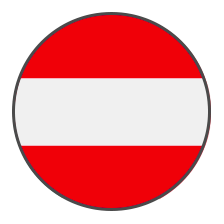
CONCLUSIONI
In conclusione si può affermare che il trattamento ha degli effetti sulla maggior parte dei valori considerati.
Infatti, riassumendo i risultati si ottiene:
- Una diminuzione significativa del peso (e anche del BMI essendo funzione del peso), del colesterolo totale, dell’HDL, dell’Hbglic, della glicemia e dei trigliceridi;
Per la creatinemia, l’LDL e l’azotemia non si registrano variazioni significative.
DISCUSSIONE
Come detto il Programma Alimentare Bioimis è strutturato in due fasi, di cui la prima costituisce un regime dietetico “non convenzionale” perché nell’ottica di massimizzare il dimagrimento punta l’attenzione sull’azione biochimica degli alimenti. L’intento di questa prima osservazione era quello di verificare la risposta dell’organismo a questo regime alimentare, al fine di escludere problematiche rilevanti per la salute dei clienti, con particolare attenzione alla funzionalità renale, considerato elemento “a rischio” nei regimi alimentari con tenore proteico superiore a quello indicato dalla dieta mediterranea. I risultati a questo proposito sono quindi da considerarsi soddisfacenti.
Attualmente è in essere un continuo monitoraggio di questi stessi clienti che forniranno esami di controllo da eseguire dopo tre mesi di mantenimento e al termine del primo anno dall’inizio del Programma.
BIBLIOGRAFIA
Caballero, «The Global Epidemic of Obesity».;
«WHO | Obesity and overweight».
Istituto Auxologico Italiano, «7° Rapporto sull’obesità in Italia ‑ Obesità e genetica: oltre lo stile di vita».
Institute of Medicine of the National Academies: Dietary reference intakes for energy, carbohydrate, fiber, fat, fatty acids, cholesterol, protein, and amino acids (macronutrients). Wash- ington, DC , National Academies Press; 2002.
Joint Position Statement: nutrition and athletic performance. American College of Sports Medicine, American Dietetic Association, and Dietitians of Canada. Med Sci Sports Exerc 2000, 32(12):2130-2145.
Tarnopolsky M: Protein requirements for endurance athletes. Nutrition 2004, 20(7-8):662-668.
Commentary. International Society of Sports Nutrition position stand: protein and exercise. B Campbell, R B Kreider, T Ziegenfuss, P La Bounty, M Roberts, D Burke, J Landis, H Lopez and J Antonio. Journal of the International Society of Sports Nutrition 2007, 4:8.
Knight EL, Stampfer MJ, Hankinson SE, Spiegelman D, Curhan GC: The impact of protein intake on renal function decline in women with normal renal function or mild renal insuffi- ciency. Ann Intern Med 2003, 138(6):460-467.
Lemon PW: Beyond the zone: protein needs of active individ-uals. J Am Coll Nutr 2000, 19(5 Suppl):513S-521S.
A H. Manninen. High-protein weight loss diets and purported adverse effects: where is the evidence? Sports Nutrition Review Journal. 1(1):45-51, 2004.
Metges CC, Barth CA: Metabolic consequences of a high dietary-protein intake in adulthood: assessment of the available evidence. J Nutr 2000, 130(4):886-889.
Brenner BM, Meyer TW, Hostetter TH: Dietary protein intake and the progressive nature of kidney disease: the role of hemodynamically mediated glomerular injury in the patho- genesis of progressive glomerular sclerosis in aging, renal ablation, and intrinsic renal disease. N Engl J Med 1982, 307(11):652-659.
Calderon JL, Zadshir A, Norris K: A survey of kidney disease and risk-factor information on the World Wide Web. Med Gen Med 2004, 6(4):3.
Lindheimer MD, Katz AI: Physiology and Pathophysiology. In Renal physiology and disease in pregnancy 2nd edition. Edited by: Seldin DW, Giebisch G. New York , Raven Press ; 1992:3371–3431.
Food and Nutrition Board, Institute of Medicine: Macronutrient and Healthful Diets. In Dietary Reference Intakes for Energy, Carbohydrate, Fiber, Fat, Fatty Acids, Cholesterol, Protein, and Amino Acids (Macronutrients) Washington, D.C. , The National Academies Press; 2002:609-696.
St. Jeor ST, Howard BV, Prewitt E et al. Dietary protein and weight reduction: A statement for health care professionals from the Nutrition Committee of the Council on Nutrition, Physical Activity, and Metabolism of the American Heart Association. Circulation 2001;104:1869-1874.
Street C. High-protein intake – Is it safe? In: Antonio J, Stout JR, eds. Sports Supplements. Philadelphia: Lippincott Williams & Wilkins, 2001, pp. 311-312.
Walser M. Effects of protein intake on renal function and on the development of renal disease. In: The Role of Protein and Amino Acids in Sustaining and Enhancing Performance. Committee on Military Nutrition Research, Institute of Medicine. Washington, DC: National Academies Press, 1999, pp. 137-154.
Poortmans JR, Dellalieux O. Do regular high-protein diets have potential health risks on kidney function in athletes? Int J Sports Nutr 2000;10:28-38.
Lentine K, Wrone EM. New insights into protein intake and progression of renal disease. Curr Opin Nephrol Hypertens 2004;13:333-336.
Campbell A. Tackling “diabesity” head-on. Joslin Diabetes Center’s new nutrition guideline. Diabetes Self Manag 2005;22:40, 42–4.
H Frank, J Graf, U Amann-Gassner, R Bratke, H Daniel, U Heemann, and H Hauner. Effect of short-term high-protein compared with normal-protein diets on renal hemodynamics and associated variables in healthy young men Am J Clin Nutr 2009;90:1509–16.
Lew SW, Bosch JP. Effect of diet on creatinine clearance and excretion in young and elderly healthy subjects and in patients with renal disease. J Am Soc Nephrol 1991;2:856–65.
Brandle E, Sieberth HG, Hautmann RE. Effect of chronic dietary protein intake on the renal function in healthy subjects. Eur J Clin Nutr 1996;50: 734–40.
Wiegmann TB, Zlomke AM, MacDougall ML, Kipp DE. Controlled changes in chronic dietary protein intake do not change glomerular filtration rate. Am J Kidney Dis 1990;15:147–54.
Bosch JP, Lew S, Glabman S, Lauer A. Renal hemodynamic changes in humans: response to protein loading in normal and diseased kidneys. Am J Med 1986;81:809–15.
Solerte SB, Rondanelli M, Giacchero R, et al. Serum glucagon concentration and hyperinsulinaemia influence renal haemodynamics and urinary protein loss in normotensive patients with central obesity. Int J Obes Relat Metab Disord 1999;23:997–1003.
Barba G, Cappuccio FP, Russo L, Stinga F, Iacone R, Strazzullo P. Renal function and blood pressure response to dietary salt restriction in normotensive men. Hypertension 1996;27:1160–4.
Ikizler TA. Nutrition support and management of renal disorders. In: Bronner, F. ed. Nutritional Aspects and Clinical Management of Chronic Disorders and Diseases. Boca Raton, FL: CRC Press, 2003, pp. 156-175.
Klahr S, Levey AS, Beck GJ et al. The effects of dietary protein restriction and blood-pressure control on the progression of chronic renal failure. N Engl J Med 1994;330:877-884.
American Diabetic Association. Evidence-based nutrition principles and recommendations for the treatment and prevention of diabetes and related complications. Diabetes Care 2002;25:S50-S60.
Gannon MC, Nuttall FQ, Saeed A et al. An increase in dietary protein improves the blood glucose response in persons with type 2 diabetes. Am J Clin Nutr 2003;78:734-41
Cooper C, Atkinson EJ, Hensrud DD et al. Dietary protein intake and bone mass in women. Calcif Tissue Int 1996;58:320-325.
Geinoz G, Rapin CH, Rizzoli R et al. Relationship between bone mineral density and dietary intakes in the elderly. Osteoporos Int 1993;3:242-8. 38. Michaelsson K, Holmberg L, Mallmin H. Diet, bone mass, and osteocalcin: a cross-sectional study. Calcif Tissue Int)1995;57:86-93.
Kerstetter JE, O ́Brien KO, Insogna KL. Dietary protein affects intestinal calcium absorption. Am J Clin Nutr 1998;68:859-865.
Kerstetter JE, Svastislee C, Caseria D et al. A threshold for low-protein-diet-induced elevations in parathyroid hormone. Am J Clin Nutr 2000;72:168-173.
Giannini S, Nobile M, Sartori L et al. Acute effects of moderate dietary protein restriction in patients with idiopathic hypercalciuria and calcium nephrolithiasis. Am J Clin Nutr 1999;69:267-271.
Schurch MA, Rizzoli R, Slosman D et al. Protein supplements increase serum insulin-like growth factor-I levels and attenuate proximal femur bone loss in patients with recent hip fracture: A randomized, double-blind, placebo-controlled trial. Annals Internal Med 1998;128:801-809.
Avenell A, Handoll H. Nutritional supplementation for hip fracture aftercare in the elderly. Cochrane Database Syst Rev 2004;1:CD001880.
Ginty F. Dietary protein and bone health. Proc Nutr Soc 2003;62:867-76.
Dawson-Hughes B, Harris SS, Rasmussen H et al. Effect of dietary protein supplements on calcium excretion in healthy older men and women. J Clin Endocrinol Metab 2004;89:1169-73
Obarzaneck E, Velletri PA, Cutler JA. Dietary protein and blood pressure. JAMA 1996;275:1598-1603.
Reed D, McGee D, Yano K, Hankin J. Diet, blood pressure, and multicollinearity. Hypertension 1985;7:405-410
Zhou B, Wu X, Tao SQ. Dietary patterns in 10 groups and the relationship with blood pressure. Collaborative Study Group for Cardiovascular Diseases and their Risk Factors. Chin Med J 1989;102:257-261
Stamler JS, Caggiuala A, Grandist GA. Relationship of dietary variables to blood pressure (BP) findings of the Multiple Risk Factors Intervention Study (MRFIT). Circulation 1992;85:867, Abstract 23.
Kuchel O. Differential catecholamine responses to protein intake in healthy and hypertensive subjects. Am J Physiol 1998;R1164-R1173.
Hu FB, Stampfer MJ, Manson JA et al. Dietary protein and risk of ischemic heart disease in women. Am J Clin Nutr 1999;70:221-227.
Navder KP, Lieber CS. Nutritional support in chronic disease of the gastrointestinal tract and the liver. In: Bronner, F. ed. Nutritional Aspects and Clinical Management of Chronic Disorders and Diseases. Boca Raton, FL: CRC Press, 2003, pp. 45-68.
Volek JS, Sharman MJ, Love DM et al. Body composition and hormonal responses to a carbohydrate-restricted diet.Metabolism 2002;51:864-870
Srivastava N, Singh N, Joshi YK. Nutrition in management of hepatic encephalopathy. Trop Gastoenterol 2003;24:59-62
Feinman RD, Fine EJ. Thermodynamics and metabolic advantage of weight loss diets. Metab Synd Relat Disord 2003;1:209-219.
 Argentina
Argentina
 Österreich
Österreich Australia
Australia Brasil
Brasil Canada
Canada Canada (Français)
Canada (Français) Schweiz
Schweiz Suisse (Français)
Suisse (Français) Svizzera (Italiano)
Svizzera (Italiano) Deutschland
Deutschland España
España France
France Great Britain
Great Britain Portugal
Portugal Usa
Usa Usa (Español)
Usa (Español)